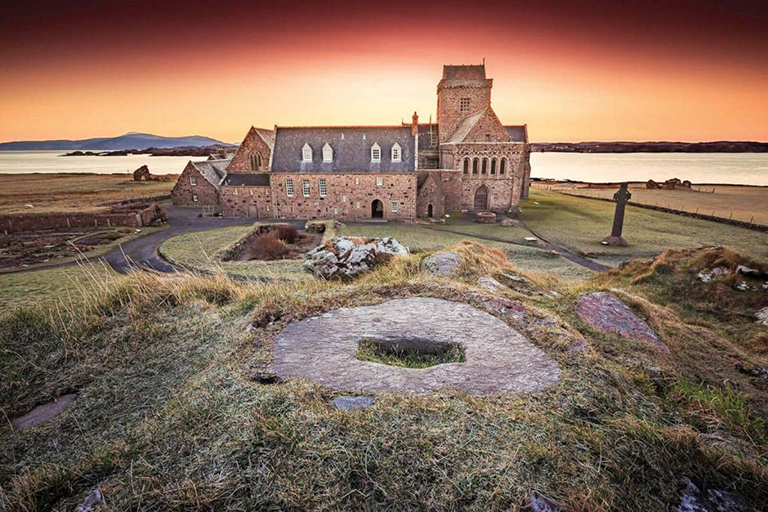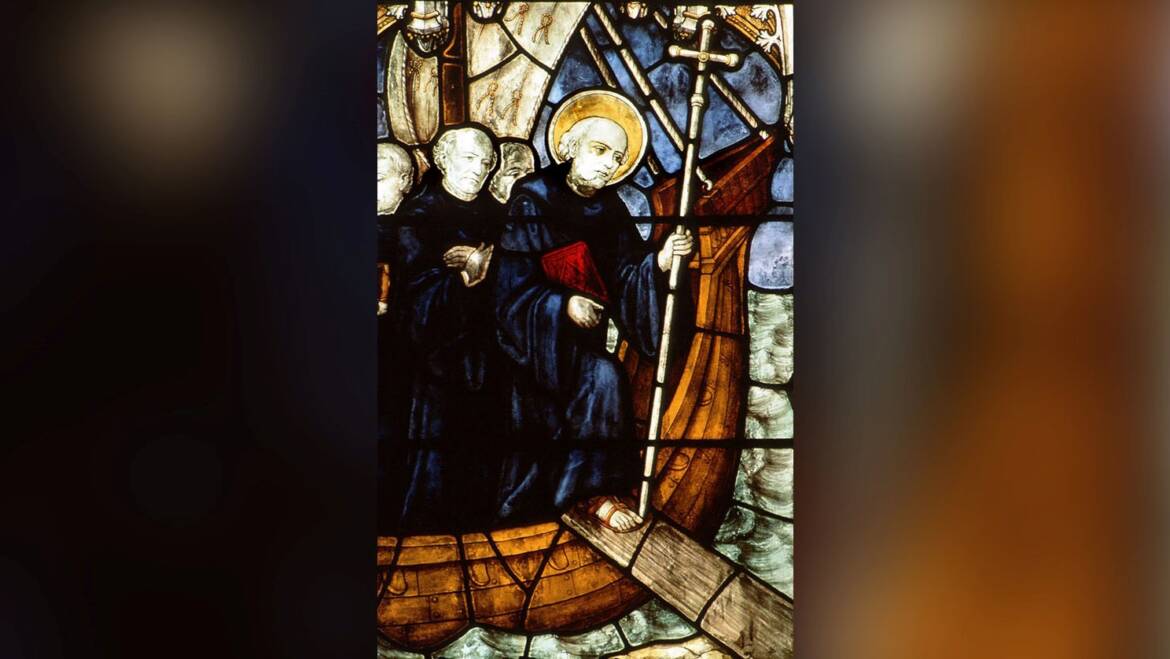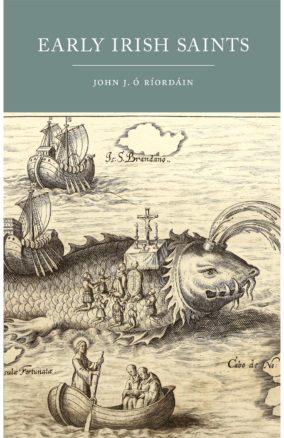St Colmcille
Saints seem to be people of many parts and Colmcille more than most: he was a prince, priest, prophet, poet, diplomat, monk, abbot, scribe, and scholar.
By secular as well as religious standards he is one of the outstanding figures of Early Medieval Ireland. Speculation about his life, his reasons for leaving Ireland, or the extend of his influence at home and abroad, cannot detract from that fact. Nor can a case be made against holiness on the grounds that he was not formally canonised by the Pope, because Colmcille lives hundreds of years prior to such formalities.
From the various sources at our disposal it is possible to put reasonable shape on his life bearing in mind that the only fairly certain date in his career is at the end. On the testimony of St Admonán, his biographer, the saint died on Iona on 9 June, AD 597, ages seventy-five. At the other end of the scale, the traditional date of his birth is 7 December, AD 521, and the place is Gartan, Co. Donegal.
His training
In his childhood, Colmcille was fostered by a local priest names Cruithnechán, who not only taught the boy his letters and his prayers but gave him a shining personal example of Christian living, so shining indeed that he too, like his young foster-child, is venerated as a saint of God.
It was during these years of fosterage that his peers, observing the boy’s frequent visits to the little chapel, dubbed him Com Cille, dove of the church, an affectionate title which has attended him ever since in Ireland, while the Scots have a preference for the Latin ‘Columba’, a dove.
His foundations

Iona Abbey, on the island of Iona off the coast of Scotland, founded by St Columba in 563.
Information on Colmcille’s life prior to his departure for Britain in AD 563 is little enough. During the decade prior to his departure he was active in establishing monastic communities throughout the upper half of Ireland where his family held sway. Of all his foundations, Iona in Scotland and Durrow in Co. Offaly are the best authenticated.
His missionary exile
In his youth, he had renounced the family inheritance. Then, at the age of forty-two, he was prepared to go a step further and renounce his native land. In Early Christian Ireland, the greatest sacrifice and penance a monk could undertake, other than martyrdom, was voluntary exile. Colmcille, who wasn’t in the habit of doing things by halves, took that penitential option.
To this day the people of Islay maintain that when the saint sailed out from Derry he made first landfall on their island, but then moved on to another Inner Hebridean Island, Iona, for his first permanent settlement in Scotland. Here, for thirty-four years, he would lead his monks in prayer, study and apostolic endeavour.
By the end of his life, Colmcille’s achievement was monumental: he had founded Iona and a number of connected monasteries in the west of Britain and in Ireland, and had exercised strong and decisive influence over the political scene in Scotland and Ireland. But he would have considered these achievements minor in comparison to what he was seeking to attain, namely, wisdom, learning and holiness.
Early Irish Saints by John J. Ó Ríordáin is available here.


